Is Styrofoam Recyclable? Behind the Main Ingredient, Polystyrene
Updated March 12 2021, 12:17 p.m. ET
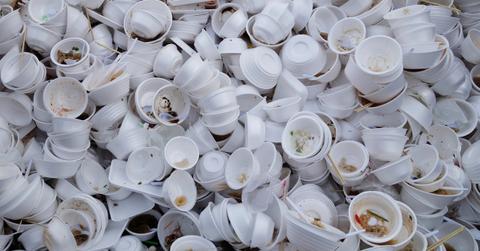
When it comes to the basics of recycling, there’s a basic rule of thumb: blue bins are typically for metal, glass, or plastics, and green ones are usually for paper and cardboard. Sounds simple enough, right? It can be, as recycling is purposely made easy, to encourage people to create a habit of doing it. But then, there are those curveball items that aren't so straightforward.
One of them is polystyrene, which is often mistakenly referred to by the popular brand name, Styrofoam, that makes up so many of our to-go lightweight containers, coffee cups, egg cartons, packaging, and more. Here’s a closer look at what Styrofoam is, whether or not Styrofoam can be recycled, and why.
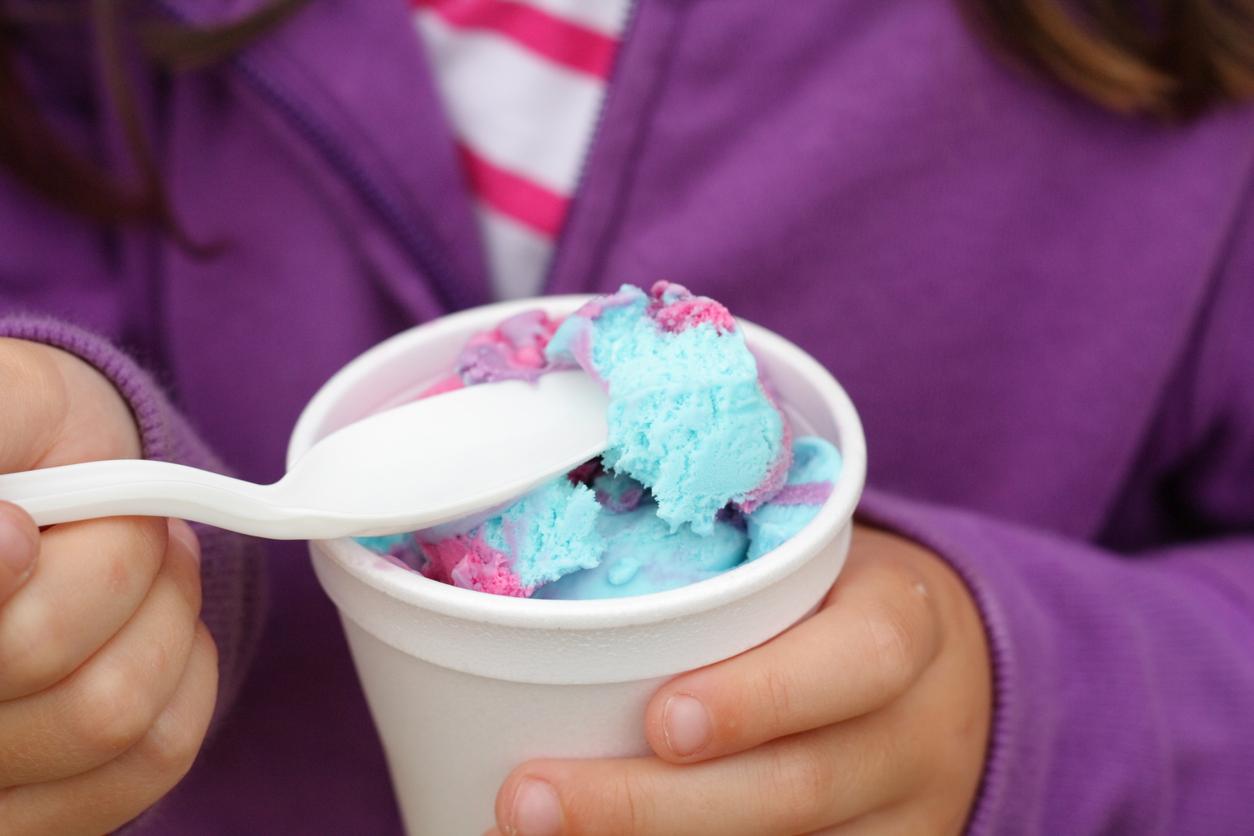
What is Styrofoam, anyway?
As previously mentioned, Styrofoam is a popular brand name of polystyrene, which is a petroleum-based plastic composed of styrene monomers. It’s so commonly used because it’s cheap, lightweight (made of 95 percent air), good for insulation, and readily available. Polystyrene products by the brand Styrofoam are typically only used for building insulation; the polystyrene products you are probably more familiar with, such as cups, food containers, and packing peanuts, are not made by the Styrofoam company, but are made from the same plastic foam material.
“When combined with various colorants, additives or other plastics, polystyrene is used to make appliances, electronics, automobile parts, toys, gardening pots and equipment and more,” as ChemicalSafetyFacts.org shares.
“Foam polystyrene... is widely used to make home and appliance insulation, lightweight protective packaging, surfboards, foodservice and food packaging, automobile parts, roadway and roadbank stabilization systems and more.”
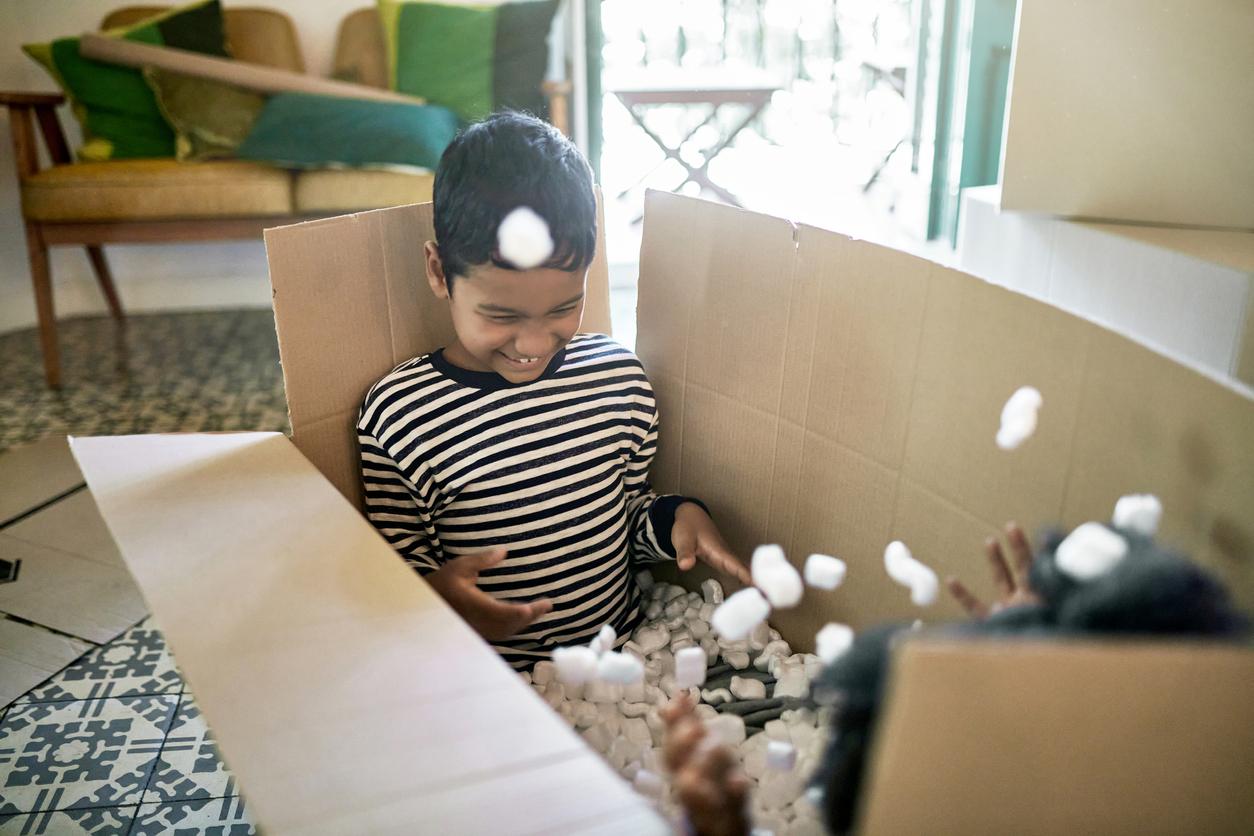
Can polystyrene be recycled?
The amount of polystyrene that's disposed of on a regular basis is shocking. According to the Green Dining Alliance (GDA), 25 billion polystyrene coffee cups are thrown away annually, the U.S. produces three million tons of polystyrene a year, and 80 percent of it ends up in the trash annually, taking over 500 years to break down.
Unfortunately, the ubiquitous material can’t be thrown into your at-home recycling bins and processed appropriately. It contaminates recycling and causes harm to the recycling process. And actually, adding these items to your bin can actually result in the entire bin being rejected from a recycling truck or facility.

Harmful toxins can leach into food and beverages from the containers, posing a threat to both humans and the environment.
“Styrene is likely to leach when it comes in contact with fatty foods, hot beverages, and especially alcohol. When thinking about the kinds of foods that typically end up in Styrofoam containers (fatty foods) and cups (hot coffee), it seems as though the exact kinds of items Styrofoam contains are exactly the kind of items it should never touch,” GDA reports.
“Styrene has been classified by the National Institute for Environmental Health Sciences as ‘reasonably anticipated to be a human carcinogen.’ This designation can be interpreted as, ‘could cause cancer, more research is needed.’” This is a scary truth that many aren't aware of, though polystyrene is likely part of their day-to-day life.
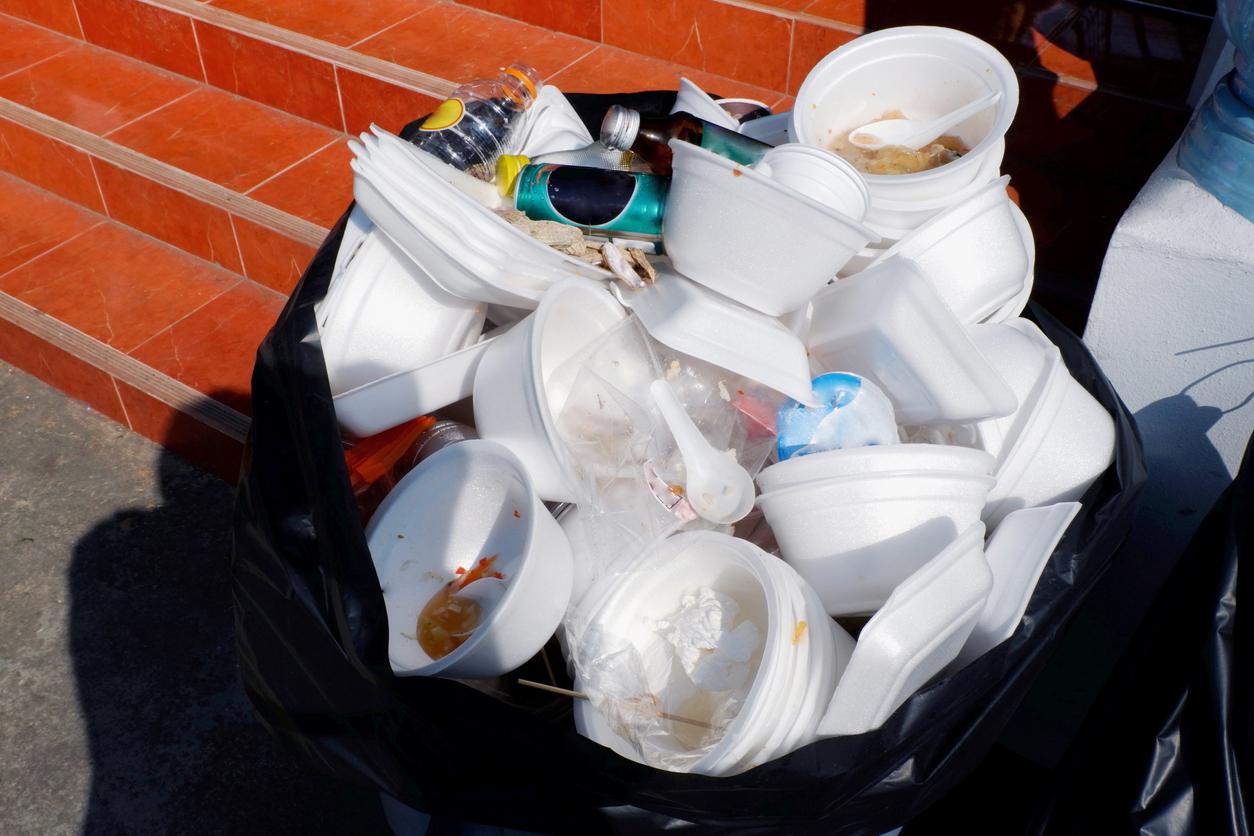
Polystyrene isn't biodegradable, either.
That's right — polystyrene doesn’t break down... ever. These products account for a whopping 30 percent of landfill space, and they essentially sit there for all eternity.
“It cannot be recycled, so the Styrofoam cups dumped in landfills are there to stay. With enough Styrofoam cups produced each day to circle the earth if lined up end to end, the potential for major ecological impact is great,” Sciencing.com reports.
But since the infamous packaging material also can’t be thrown in your at-home recycling bins, so much of it gets discarded in the trash or elsewhere anyway. And 20 percent of it ends up in our waterways, polluting ecosystems and harming the wildlife that ingest the pellets.
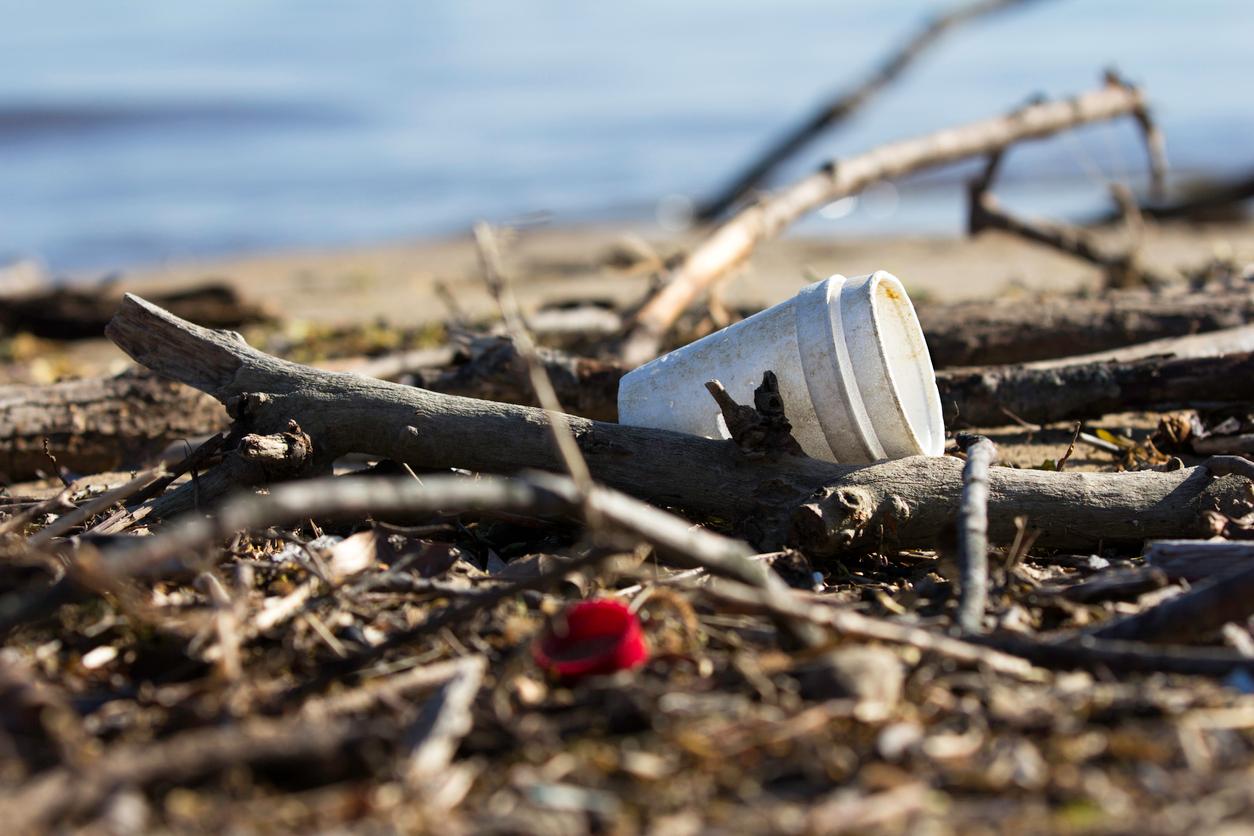
So what should you do with your polystyrene products?
There are smarter, better ways to dispose of your polystyrene coffee cups.
Some cities and towns have drop-off centers that accept polystyrene and foam packaging, and some stores offer take-back programs for re-use or re-purposing. Organizations like Earth911 also offer polystyrene recycling services across the country.
Better yet, avoid it when possible.
Many agree that your best bet is to avoid these products in the first place, wherever possible. Opt for biodegradable, nontoxic recycled paper products (or restaurants and shipping providers that use them) when you can.
Cities around the world, from New York to San Francisco and Portland, are adopting no-polystyrene policies, and it’s gaining traction worldwide as well.
More alternatives are expected to become available, too. “As more governments consider EPS ban legislation and businesses phase out EPS foam packaging, you’ll likely start seeing alternatives. You can already find food packaging made from bamboo, cornstarch, mushrooms, and peat plastic, not to mention plantable packaging,” Earth911 shares.
Stay informed, keep your options in mind, and help keep those lightweight, cancer-causing cups out of the environment.